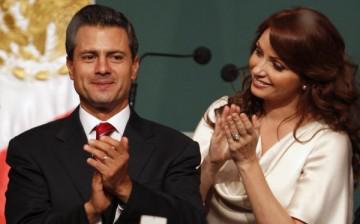
This year’s Mexican presidential elections on 1 July were by all means a big event. Almost 50 million voters turned out, a majority to vote in a handsome former governor representing the ousted Institutional Revolutionary Party. It was a spectacle that took place before more than 500 international observers, and under a media spotlight, covered by not only Mexican newspapers and television networks, but everyone from CNN to China’s state-run Xinhua News Agency as well.
But was it a success? “[Mexico’s] electoral process was one that subscribed to international democratic standards and a clear sign that the country’s electoral institutions and regulations are robust and a leading example for the rest of Latin America,” declared César Gaviria, a former Colombian president and Secretary General of the Organization of American States, who headed the large group of international observers monitoring the election.
Some in Mexico agreed with Gaviria. “This year we certainly started witnessing how a true democracy really functions despite all the inconveniences and disruptions that come along with it,” said Uriel Padilla, a PhD on Political Science specialized in current Mexican politics from the National Autonomous University of Mexico.
But certainly not everyone agreed. By the end of the day, Enrique Peña Nieto, the former governor of the State of Mexico,was declared the President-elect. Almost immediately, the result was challenged by runner-up Andrés Manuel López Obrador, who alleged vote-buying and media manipulation. For those observing, Peña Nieto’s presumed election was a return to the old guard and was a victory for the Institutional Revolutionary Party (PRI), the center-right and some would say totalitarian party that governed the country for over 70 years until being ousted in 2000 by the rightist National Action Party (PAN). At the heart of the election, observers claimed, is the Mexican government’s six-year long battle with the drug cartels, a bloody and costly war that has so far claimed the lives of more than 60,000 people. Under PRI, the drug cartels were powerful, but not challenged directly – and, some say, that saved lives. Mexicans are now wondering what kind of war on drugs Peña Nieto will be running.
Who is Peña Nieto?
However, Peña Nieto’s potential rethink on the bloody war on drug cartels wasn’t the only thing that got him elected: There’s his wife, telenovela star Angélica Rivera de Peña, who will become the country’s next First Lady. Whether the actress will represent something new for Mexican politics or not is something voters and analysts are still debating.
“Enrique Peña Nieto’s telegenic looks and clean smile, plus favorable and constant media coverage during the last couple of years, might have gained him a lot of votes but the fact that he married one of Mexico’s most admired soap opera actresses might have as well played a part in his success,” argued Estrella Ramírez, a media specialist from the Communications University in Mexico City.
It’s seems to have: “I love her, she definitely looks better in person than on television…. She has always been a star but I’m sure her best role is yet to come, that of First Lady,” declared an exhilarated Sonia Díaz, a housewife in her 40s, after attending Peña Nieto’s victory speech for his party’s followers on election night.
At 41 years old, Rivera de Peña is best known in Mexico for her 20-year television career that started with modeling and cameo appearances in music videos. Famous all over Latin America, Mexico’s next First Lady married the President-elect in late 2010 after a failed marriage to one of the country’s most powerful television producers which left her with three daughters. The former actress played a main but mostly quiet role during the presidential campaign, posting behind the scenes videos of her own on a webpage promoting her husband’s candidacy.
Whether her role as First Lady, a traditionally unassuming position, sets her aside from her predecessors is to be seen. So far, the country is just eager to have a new president and, of course, a brand new First Lady too.

